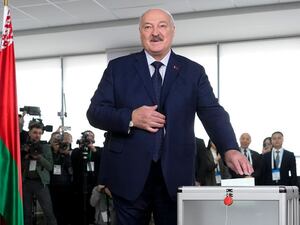Clashes resume between factions in Lebanon’s largest Palestinian refugee camp
Street battles have taken place over several days in Ein el-Hilweh.

Clashes have resumed in Lebanon’s largest Palestinian refugee camp, with heavy gunfire and shelling wounding several people and prompting residents of the camp and the surrounding area to flee on Friday.
Street battles had broken out over several days in the camp, Ein el-Hilweh, between Palestinian President Mahmoud Abbas’ Fatah movement and Islamist groups after Fatah accused the Islamists of gunning down one of their military generals on July 30.
Those street battles left at least 13 dead and dozens wounded, and forced hundreds to flee from their homes.
An uneasy truce had been in place since August 3, but clashes were widely expected to resume as the Islamist groups have not handed over the accused killers of the Fatah general, Mohammad “Abu Ashraf” al-Armoushi to the Lebanese judiciary as demanded by a committee of Palestinian factions earlier this month.

Fatah officials said that the Islamist groups had launched an attack on Thursday night in an attempt to forestall plans by the joint security forces to clear militants out of schools they had been occupying in the camp on Friday.
The state-run National News Agency reported six people were wounded, including an elderly man, and transported to hospitals overnight. There were no immediate reports of deaths.
The public Lebanese University announced it would close its branches in the city of Sidon, which is adjacent to the camp, and postpone scheduled exams in light of the fighting.
Officials with the UN agency for Palestinian refugees (UNRWA), could not immediately give information on the number of casualties or displaced.
UNRWA appealed last week for 15.5 million dollars (£12.4 million) to repair infrastructure damaged in the last round of clashes in the camp, provide alternate education locations for children whose schools were damaged or occupied by militants, and give cash assistance to people who have been displaced from their homes.





